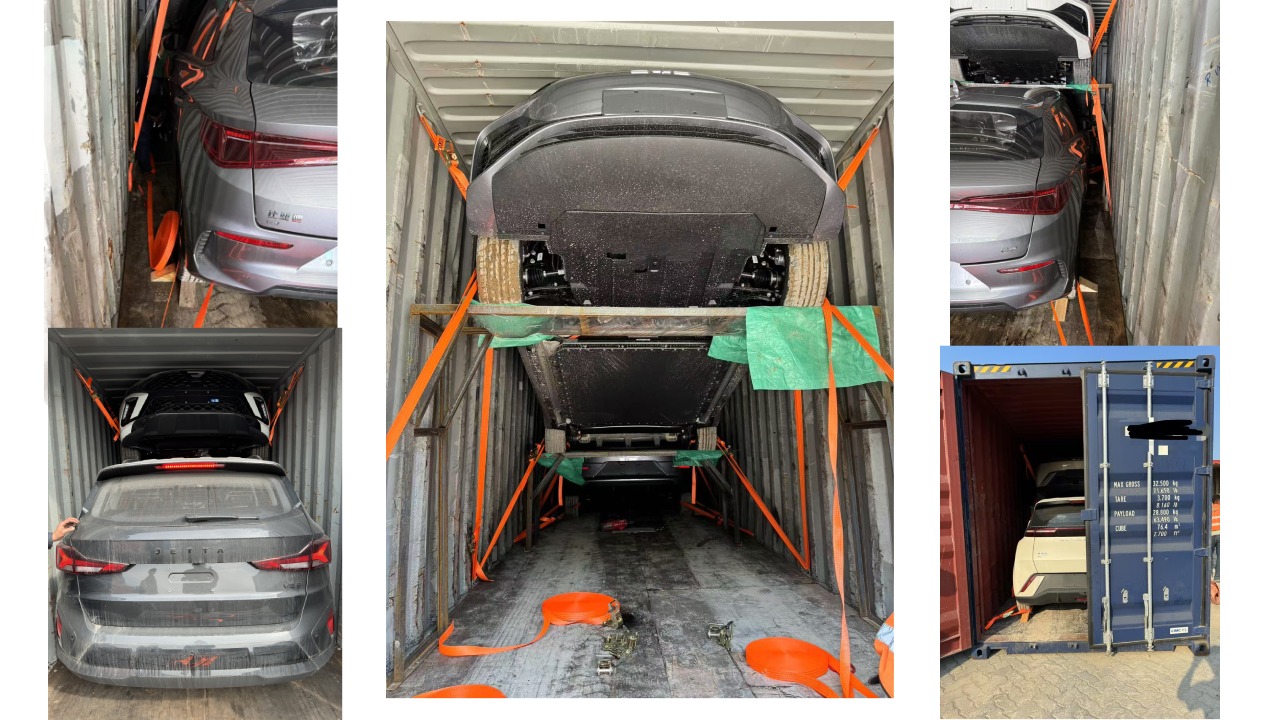January 7, 2025
In recent years, the surge in popularity of Electric Vehicles (EVs) has not only transformed the automotive industry but also significantly influenced global shipping logistics. With EVs being shipped worldwide, Roll-on/Roll-off (Ro-Ro) vessels have become increasingly favored for their efficiency in transporting wheeled cargo. However, this heightened demand has put considerable pressure on booking spaces aboard Ro-Ro ships, leading to a competitive market.
Despite the modern preference for Ro-Ro shipping, traditional methods remain a viable option for handling overweight machines and vehicles. Loading cars into containers involves a meticulous four-step process:
Firstly, a forklift elevates the car to a suitable height before placing it on a holder for secure fixation.
Next, the vehicle is fastened with belts, ensuring stability. The wheels are then secured with additional belts and a wooden base to prevent movement.
Finally, a thorough inspection confirms the vehicle’s securement.
A 40-foot High Cube container can typically accommodate up to four sedans, offering a cost-effective alternative to Ro-Ro shipping. While ocean freight via containers may present lower costs, it is essential to balance these savings against the specific requirements of each shipment, such as size, weight, and destination.
For those still opting for Ro-Ro vessels, early planning is crucial due to the competitive nature of bookings. To ensure a smooth shipping process, customers should send inquiries at least two weeks in advance. As the EV trend continues to grow, adapting shipping strategies will be key to meeting the evolving demands of the automotive market.

About Us
Shenzhen Focus Global Logistics Corporation is a freight forwarding company with 25 years’ experience in the Southeast Asia, Middle East, and other “Belt and Road Initiative” (BRI) countries. We have about 330 employees and 10 branches, including Tianjin, Qingdao, Shanghai, Ningbo, Jiangmen, Guangzhou, Huizhou, Foshan, and Xi’an.
FGL provides international transportation service including sea freight, air freight, customs brokerage, warehousing distribution, supply chain management, insurance, truck, railway, and sea-rail combined transportation.
Post time: Jan-08-2025





